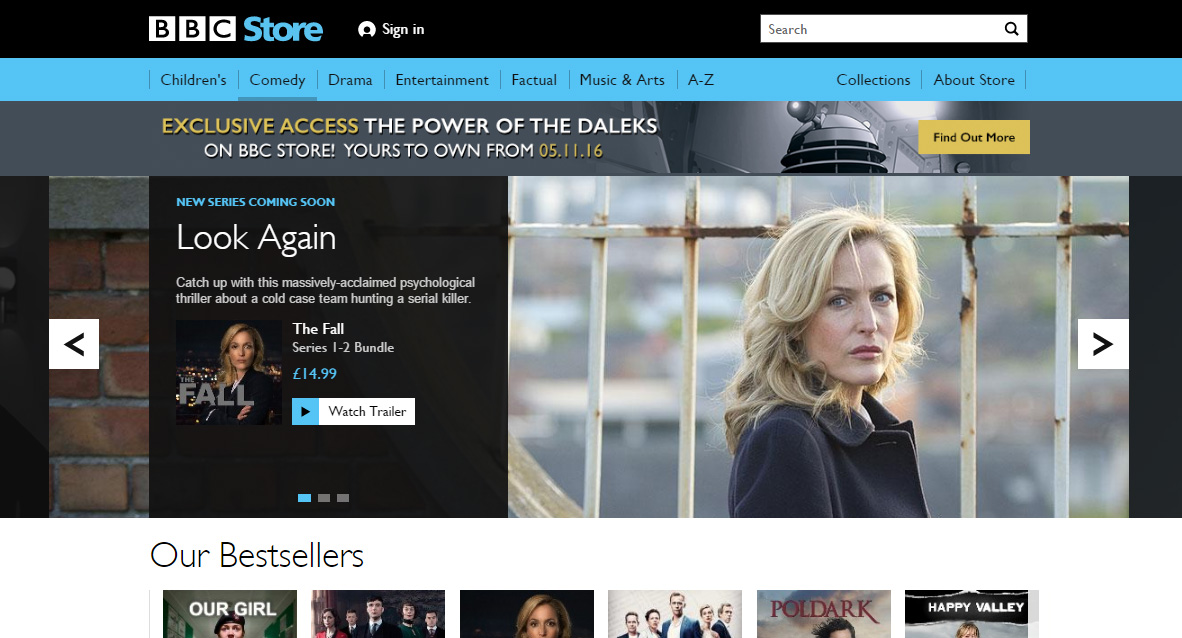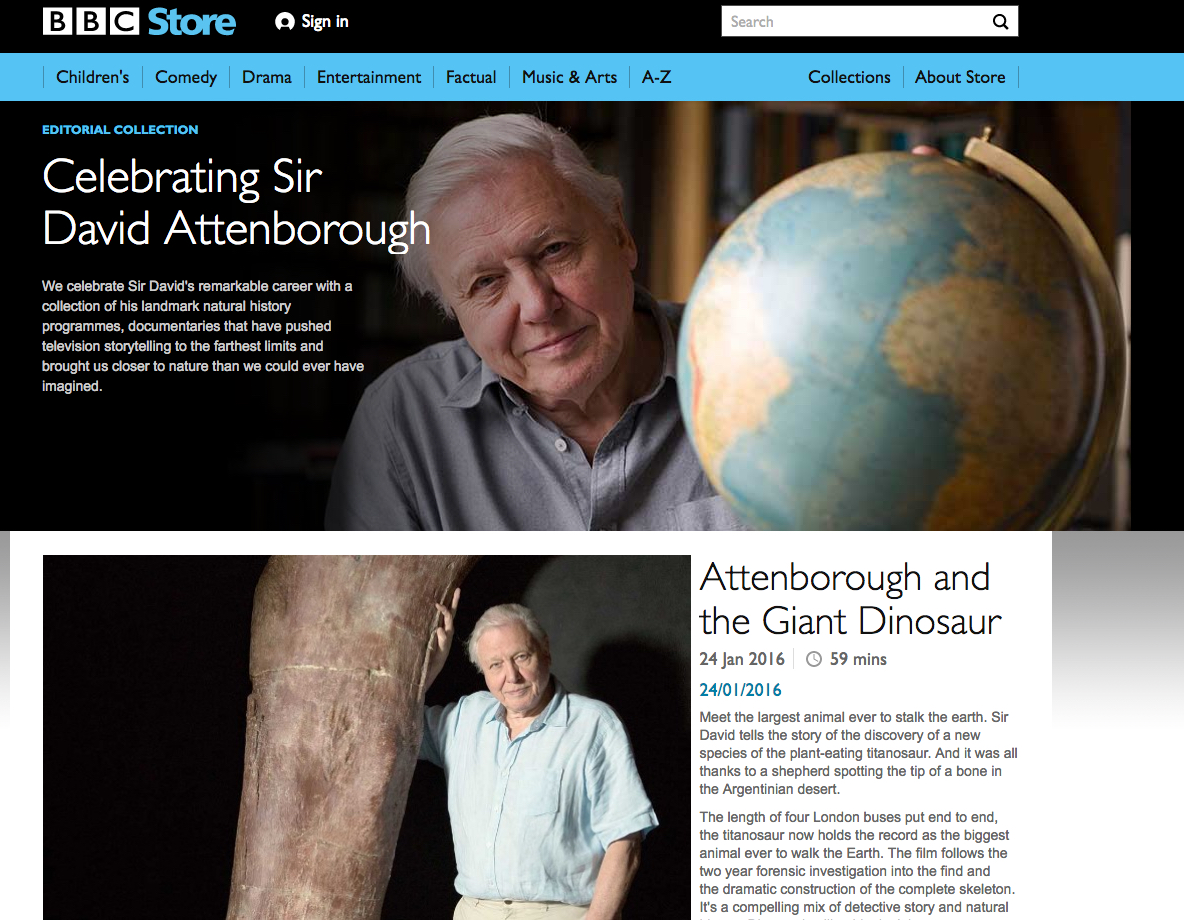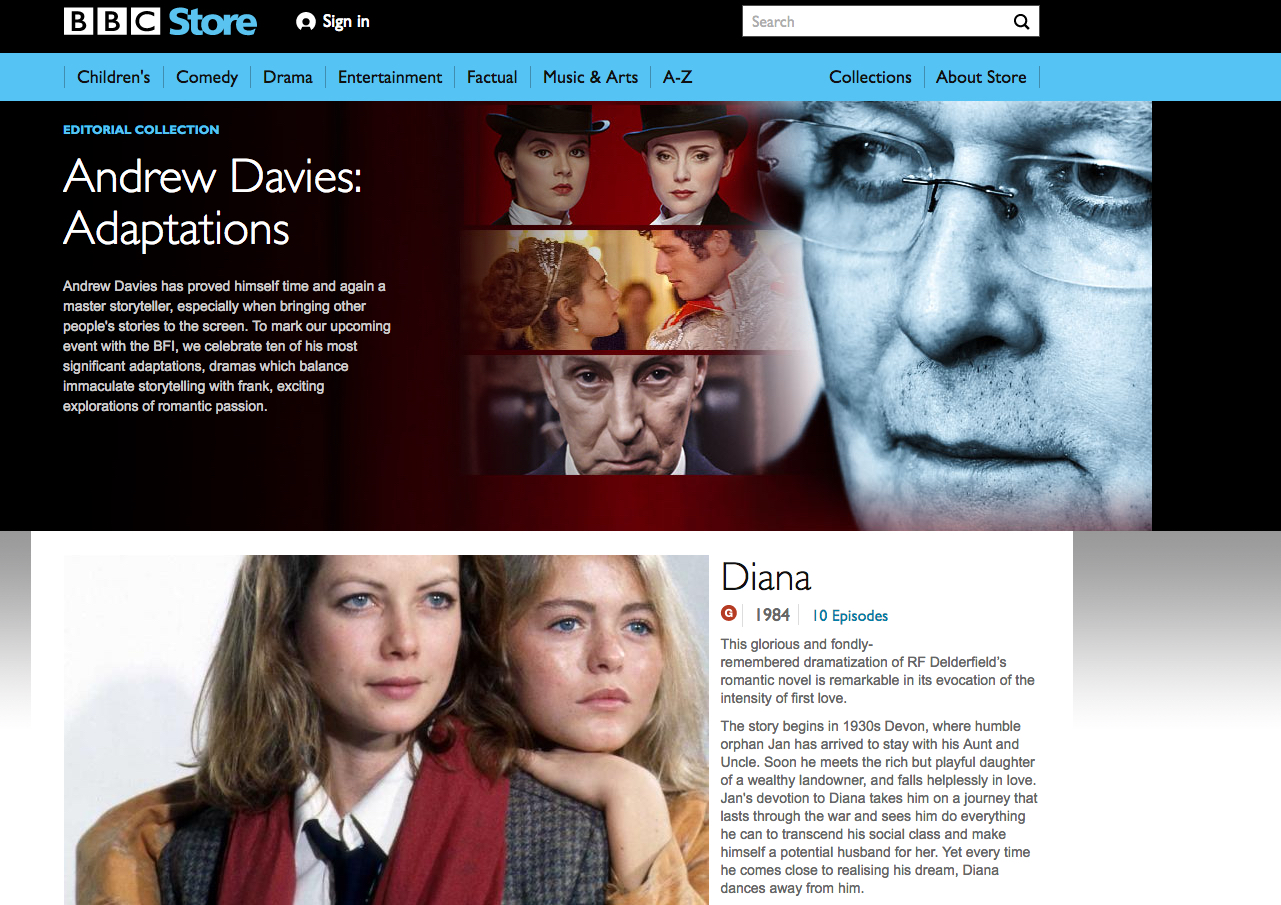As Head of Rights Business Development at the BBC, Ben Green led the rights negotiation strategy and implementation to enable the approval and launch of the hugely ambitious and pioneering BBC Store: – the BBC’s own digital retail platform, which offered over 10,000 hours of both new and archive programming to buy, watch and keep.
It had been calculated that, historically, only 7% of the BBC Television schedule was being exploited commercially. So apart from the iPlayer catch-up window and the occasional repeat broadcast, the other 93% of programmes would rarely (if ever) be seen again by the public after their first broadcast. That was a powerful statistic that demanded some action.
So, BBC Store became one part of the BBC’s archive strategy: to offer UK Licence Fee payers more permanent availability of the programmes they helped to fund, either freely (via the iPlayer catch-up and some permanent online collections), or via a reasonably-priced, cost-effective commercial offering.
Turning strategies and top-level ambitions into reality is something else, however, and what made this particularly challenging was the ambition to make a significant part of the broadcast schedule available to be sold digitally on a permanent basis online from the day after broadcast.
Following my work on the iPlayer (see other Case Study) I was asked to lead the Rights workstream to deliver BBC Store. Logically there were many similarities: acquiring rights on new programmes upfront (where not already in place), and a process for exempting programmes where there was a problem. However, it was quickly realised that, unlike the widely accepted iPlayer free public service window, there would be a tidal wave of other commercial rights considerations to work through. Not only would the BBC need to obtain wider commercial rights in genres that were previously rarely exploited (e.g. Arts and Culture, Documentaries), but also it would be critical to ensure that the agreements and administration were in place to pay rights-holders their appropriate revenue shares and royalties, on a rapidly growing commercial programme catalogue.
A root-and-branch review of complex rights and revenue flows between producers and distributors (where the rights could be owned by any number of different parties); exclusivity/non-exclusivity; windowing, territory and licence period limitations to track; negotiating new rights models to make the ambition both affordable for the BBC and reasonable for the rights-holder – these were just some of the many parts of the rights jigsaw myself and my team oversaw.
And then there was the BBC’s archive…
Clearly it wasn’t feasible to digitise and clear the rights to release the entire TV archive (there’s approximately 800,000 hours), so a conservative target was set of 1000 hours of previously unreleased archive per year (in addition to the existing commercial archive catalogue being sold as DVD/ Download to Own). Few realise the onerous task of tracking down certain rights holders of archive programming (some of it over 50 years old) to renew rights but, after much detective work by a superb clearance team, there were some great successes resulting in some real gems becoming available. Many had not seen the light of day for decades.
I personally negotiated the new rights agreements to enable BBC Store to release the archive collections of many of the top Drama and Comedy writers: Dennis Potter, Alan Bennett, Mike Leigh, Alan Bleasdale, and Andrew Davies, to name just a few. I also led many other leading talent, distributor and framework deals, and oversaw the implementation of the new terms and processes used by the Rights Legal & Business Affairs teams across the UK, and published rights guidance for independent production companies to help them deliver their programmes to BBC Store appropriately cleared.
As far as I am aware, no other broadcaster on the globe offered this scale and type of service to its audience. The BBC (as it so often does) pioneered a genuinely new service that could potentially grow a new commercial market in the UK, particularly for genres not normally available for the public to buy.
So it was extremely saddening to hear in Spring 2017, not 18 months after launch, that BBC Worldwide decided to close the service ‘due to market forces’ (i.e. an audience preference for subscription streaming services).
BBC Store is, however, still something I’m immensely proud to have worked on and been instrumental in launching.
N.B. The Case Study above represents the personal views and general historic facts surrounding the project. For the avoidance of doubt, these views are not those of the BBC, nor do they represent any endorsement (actual or implied) by the BBC of Ben Green Associates Limited.








